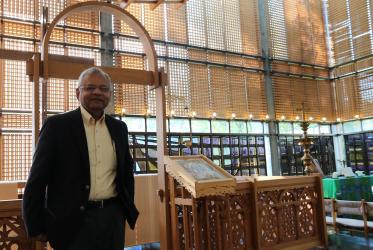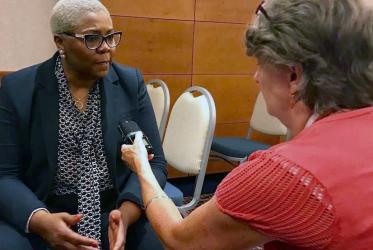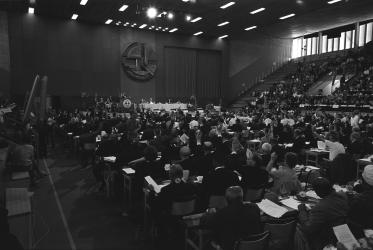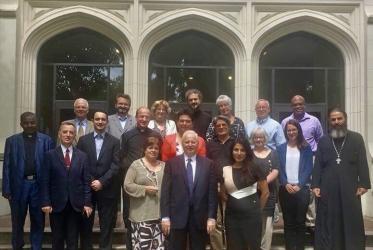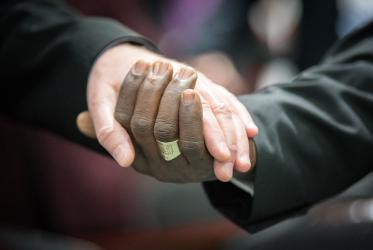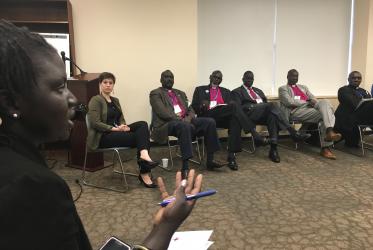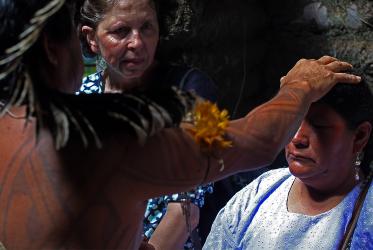Displaying 161 - 180 of 310
01 November 2018
EKD delegation, other visitors grace WCC
26 October 2018
Casely Essamuah, ‘working for the greater glory of God’
26 October 2018
Rev. Traci Blackmon: people of faith must not be silent
21 September 2018
#WCC70: From ecumenical seeds
11 September 2018
#WCC70: Des graines œcuméniques
11 September 2018
WCC celebrates life of Katie Cannon
16 August 2018
WCC statement welcomes hopeful turn in Korea
20 June 2018



